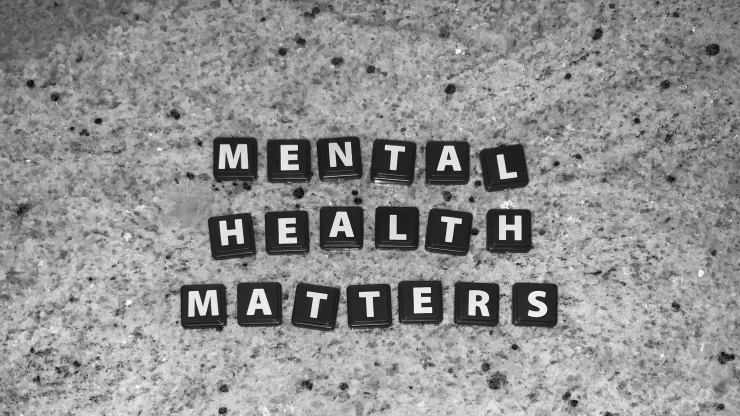The Importance of Self-Awareness
Self-awareness is the ability to recognize and understand one’s thoughts, emotions, and behaviors. It is a crucial skill for personal growth, development, and success.
Self-awareness is also essential for cultivating happiness and well-being.
By being aware of our thoughts, emotions, and behaviors, we can make better decisions, improve our relationships, and live a more fulfilling life.
In this article, we will explore the role of self-awareness in cultivating happiness and well-being.
Jump to Section
Understanding Self-Awareness and its Benefits
Self-awareness is the foundation of emotional intelligence. It is the ability to recognize and understand our emotions, thoughts, and behaviors.
Self-awareness allows us to identify our strengths and weaknesses, our values and beliefs, and our goals and aspirations.
It also enables us to recognize how we impact others and how they impact us.
By being self-aware, we can improve our communication skills, build better relationships, and make better decisions.
The benefits of self-awareness are numerous.
Self-awareness can help us improve our self-esteem, reduce stress and anxiety, and enhance our overall well-being.
It can also help us become more resilient, adapt to change, and achieve our goals.
Self-awareness is also crucial for personal growth and development.
By being aware of our thoughts, emotions, and behaviors, we can identify areas for improvement and work towards becoming the best version of ourselves.
Self-Awareness and Emotional Intelligence
Emotional intelligence is the ability to recognize and manage our emotions and the emotions of others.
It is a crucial skill for success in both personal and professional life.
Self-awareness is the foundation of emotional intelligence. By being self-aware, we can recognize our emotions, understand how they affect us, and manage them effectively.
Self-awareness also enables us to recognize the emotions of others, empathize with them, and respond appropriately.
Emotional intelligence is essential for building and maintaining healthy relationships. It allows us to communicate effectively, resolve conflicts, and build trust and respect.
Emotional intelligence is also crucial for success in the workplace.
It enables us to work well with others, manage our emotions under pressure, and make better decisions. By cultivating self-awareness, we can improve our emotional intelligence and enhance our personal and professional life.
Cultivating Self-Awareness: Tips and Techniques
Cultivating self-awareness requires practice and intentionality. Here are some tips and techniques for developing self-awareness:
- Practice mindfulness: Mindfulness is the practice of being present and non-judgmental. It allows us to observe our thoughts, emotions, and behaviors without reacting to them.
- Journaling: Writing down our thoughts and emotions can help us identify patterns and gain insights into our behavior.
- Seek feedback: Asking others for feedback can help us gain a different perspective and identify areas for improvement.
- Take personality tests: Personality tests can help us understand our strengths, weaknesses, and preferences.
- Practice self-reflection: Taking time to reflect on our thoughts, emotions, and behaviors can help us gain insights into ourselves.
The Connection between Self-Awareness and Happiness
Self-awareness is a crucial component of happiness. By being self-aware, we can identify what makes us happy, what brings us joy, and what gives our life meaning.
Self-awareness allows us to align our actions and behaviors with our values and goals, which leads to a more fulfilling life.
It also enables us to recognize and manage our negative emotions, which can reduce stress and anxiety and enhance our well-being.
Research has shown that self-awareness is positively correlated with happiness. People who are more self-aware tend to be happier, more confident, and more resilient.
By cultivating self-awareness, we can enhance our happiness and well-being.
Self-Awareness as a Key to Well-being
Self-awareness is a key component of well-being. Well-being is a state of being comfortable, healthy, and happy.
It involves the integration of physical, emotional, and social well-being. Self-awareness allows us to identify areas of our life that need improvement, such as our physical health, emotional well-being, and social relationships.
By being self-aware, we can take steps to improve our well-being and live a healthier, happier life.
Research has shown that self-awareness is positively correlated with well-being. People who are more self-aware tend to have better physical health, emotional well-being, and social relationships.
By cultivating self-awareness, we can enhance our well-being and live a more fulfilling life.
FAQ
What are the benefits of self-awareness?
Self-awareness has numerous benefits, including improving self-esteem, reducing stress and anxiety, enhancing personal and professional relationships, increasing resilience, adapting to change, and achieving goals.
How can I cultivate self-awareness?
You can cultivate self-awareness by practicing mindfulness, journaling, seeking feedback, taking personality tests, and practicing self-reflection.
What is emotional intelligence?
Emotional intelligence is the ability to recognize and manage our emotions and the emotions of others. It is a crucial skill for success in both personal and professional life.
How does self-awareness contribute to happiness and well-being?
Self-awareness contributes to happiness and well-being by allowing us to identify what makes us happy, align our actions and behaviors with our values and goals, recognize and manage negative emotions, and identify areas of our life that need improvement. By cultivating self-awareness, we can enhance our happiness and well-being.

With a deep passion for personal development, Ben has dedicated his career to inspiring and guiding others on their journey towards self-improvement.
His love for learning and sharing knowledge about personal growth strategies, mindfulness, and goal-setting principles has led him to create My Virtual Life Coach.
Contact Ben at [email protected] for assistance.




